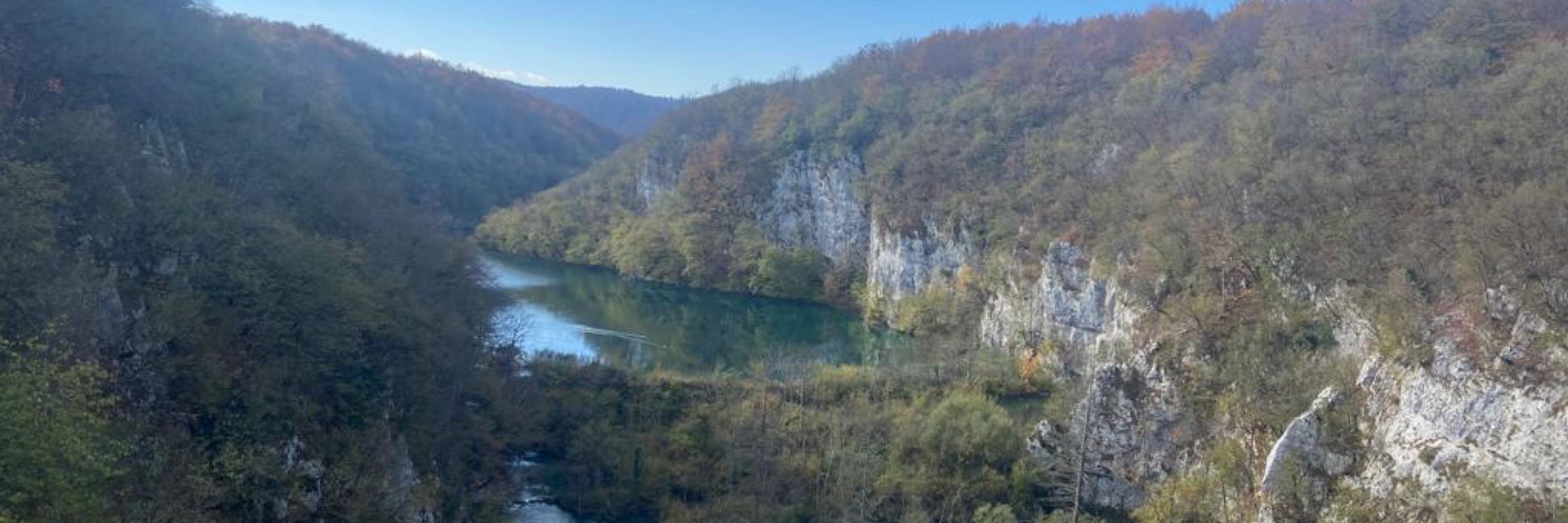
Ecologist; Biodiversity Synthesis Professor @idiv; Dad
Reposted by Jonathan M. Chase, Etienne Lalechère

www.idiv.de/major-update...
@uniofstandrews.bsky.social @idiv-research.bsky.social @erc.europa.eu @jon-chase03.bsky.social
Reposted by Inês S. Martins
Paper:
onlinelibrary.wiley.com/doi/10.1111/...
Database:
biotime.st-andrews.ac.uk
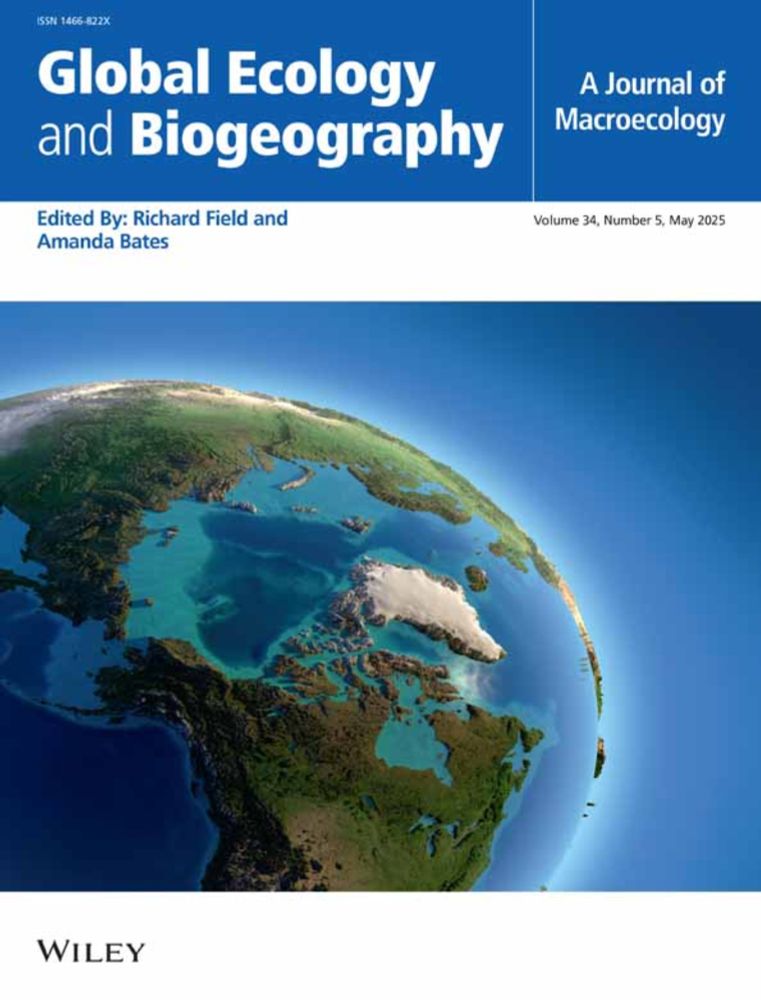

Paper:
onlinelibrary.wiley.com/doi/10.1111/...
Database:
biotime.st-andrews.ac.uk
Reposted by Jonathan M. Chase, Nick M. Haddad
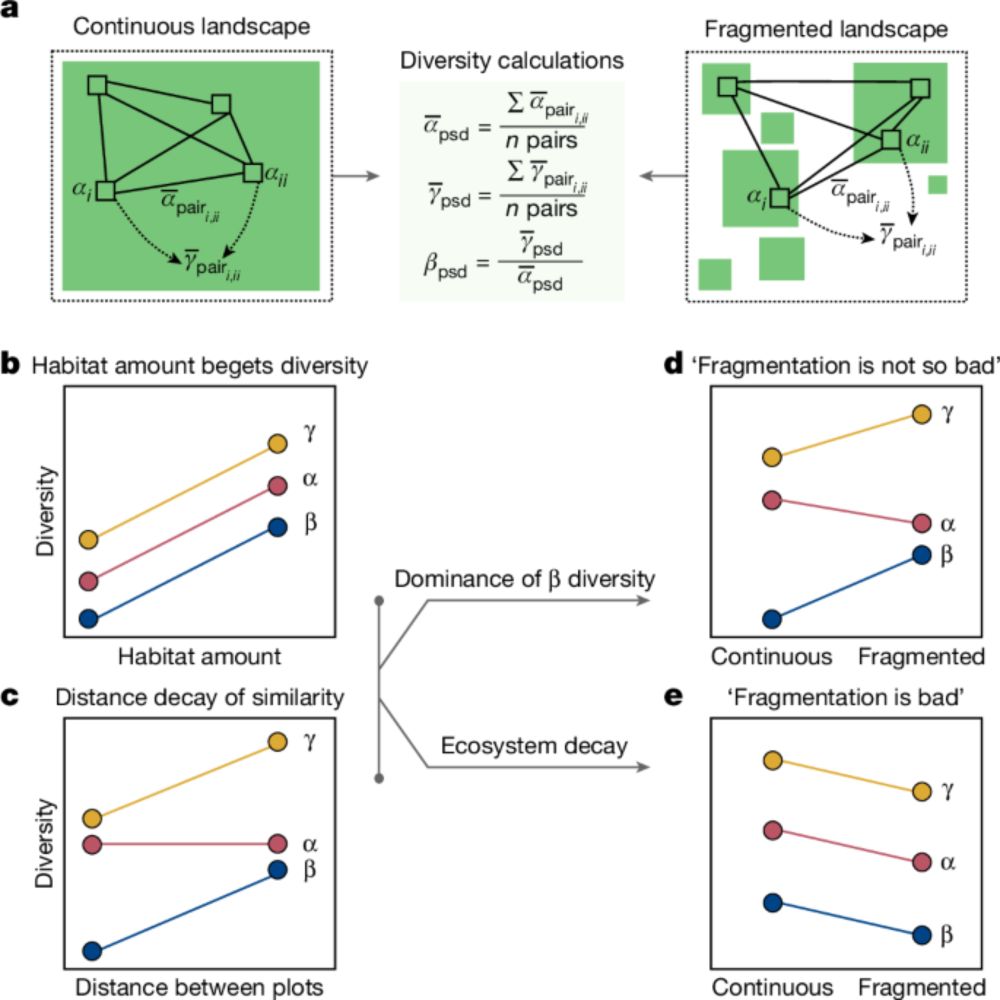
Really clear results and extremely important research!!
I will use it in my classes
Congrats Thiago Gonçalves-Souza @natejsanders.bsky.social @jon-chase03.bsky.social @nickhaddad.bsky.social
www.nature.com/articles/s41...
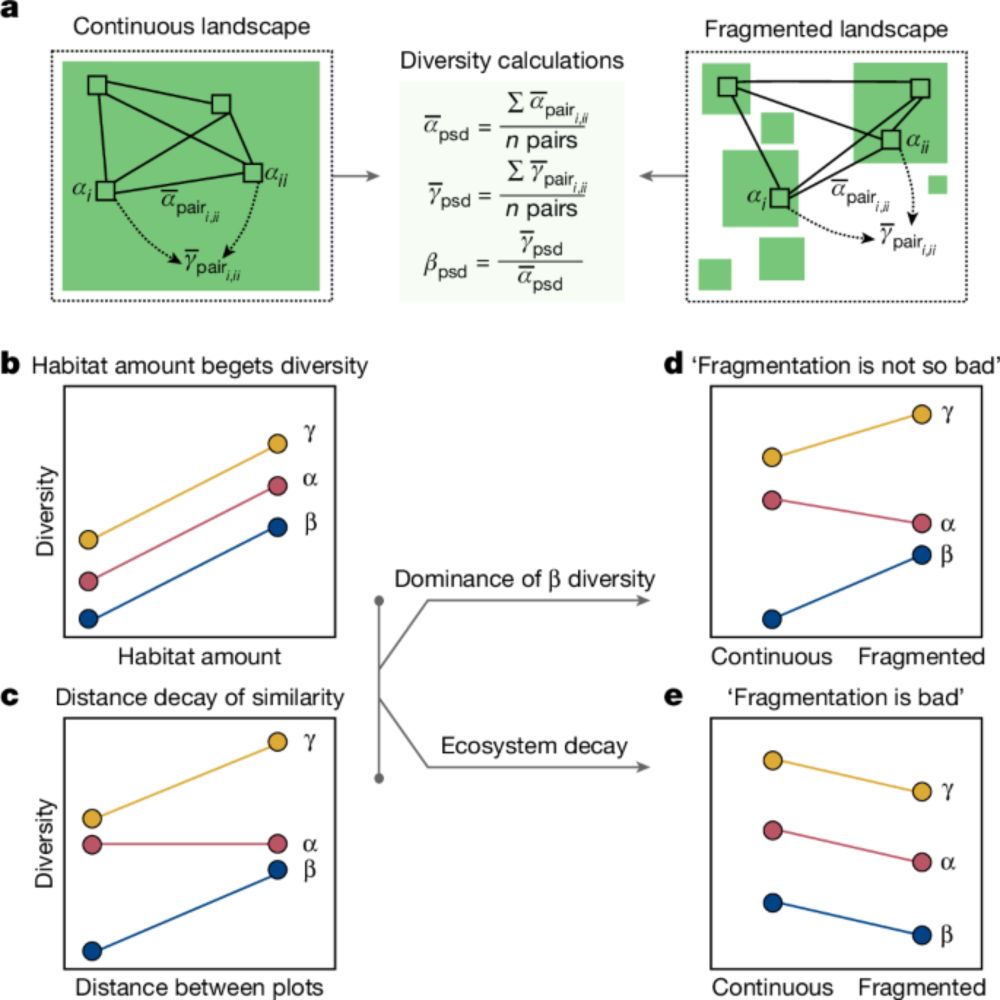
Results from 37 studies distributed worldwide, on plants and animals, comparing continuous and fragmented landscapes.
www.nature.com/articles/s41...
www.nature.com/articles/s41...
A must read for anyone interested in this topic. See my summary here:
www.nature.com/articles/d41...
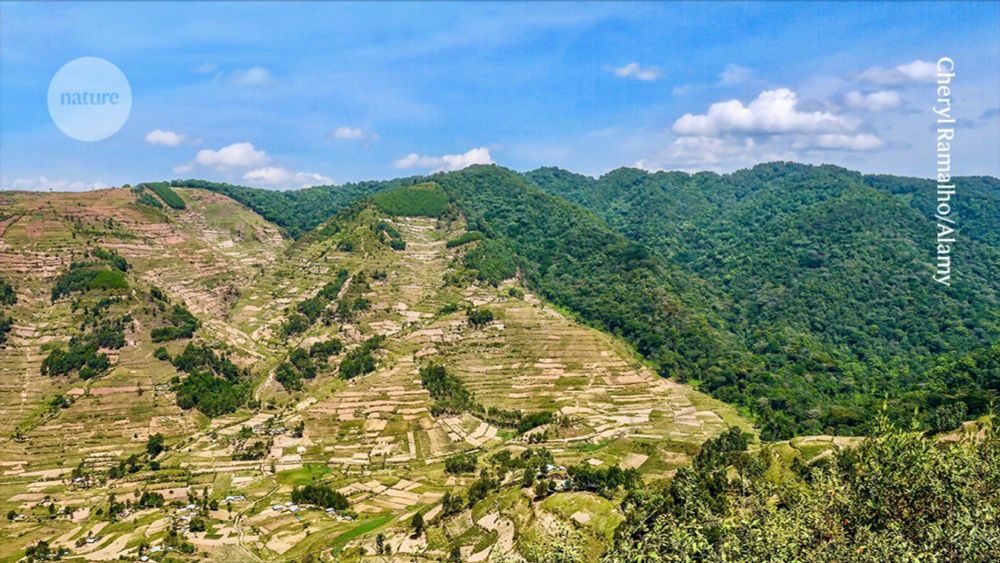

www.nature.com/articles/s41...
A must read for anyone interested in this topic. See my summary here:
www.nature.com/articles/d41...

We use a classical competition-colonization metacommunity model to show that fragmentation can increase or decrease diversity depending on the total amount of habitat in the landscape. 🧪
www.nature.com/articles/s41...
Reposted by Jonathan M. Chase


www.pamarasekare.org
But super pleased to see the early career list has Melissa Guzman, whom I was privileged to help nominate (and work with; she’s a 🌟) and Diogo Provete, who is spending the next year at IDiv in my research group, on a Humboldt foundation sabbatical!
www.esa.org/blog/2024/04...
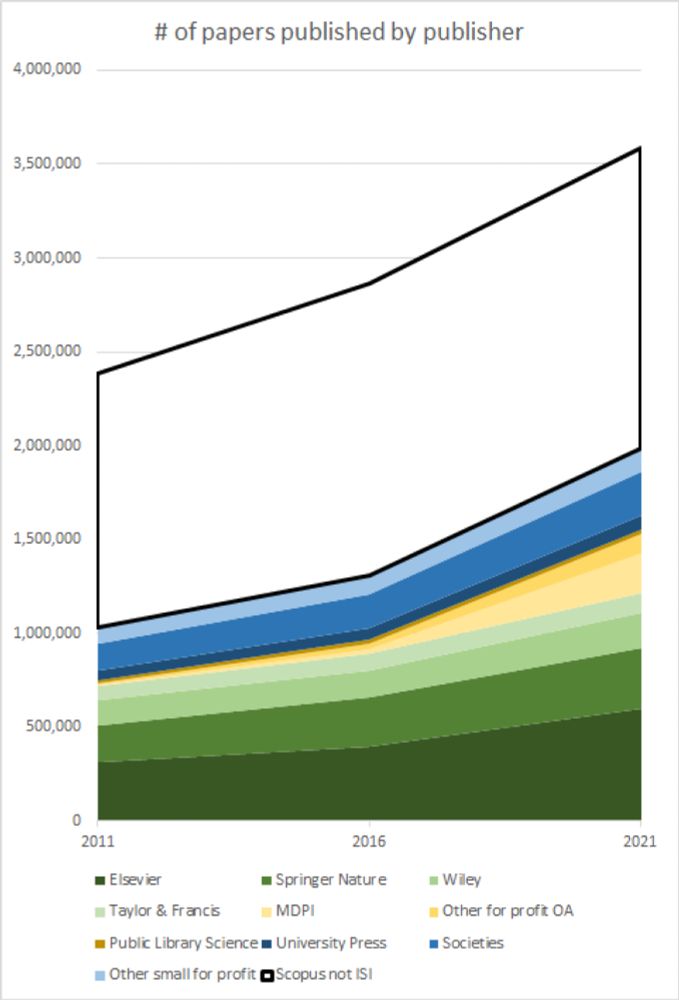
➡️We know academic publishing is broken;
➡️We know for profit publishers are driving us to a breaking point;
➡️We know we’re publishing too much;
➡️We are complicit!
dynamicecology.wordpress.com/2024/04/29/t...

doi.org/10.1002/ecy....
Reposted by Jonathan M. Chase

www.chronicle.com/article/ucla...
Reposted by Jonathan M. Chase, Valentin Journé
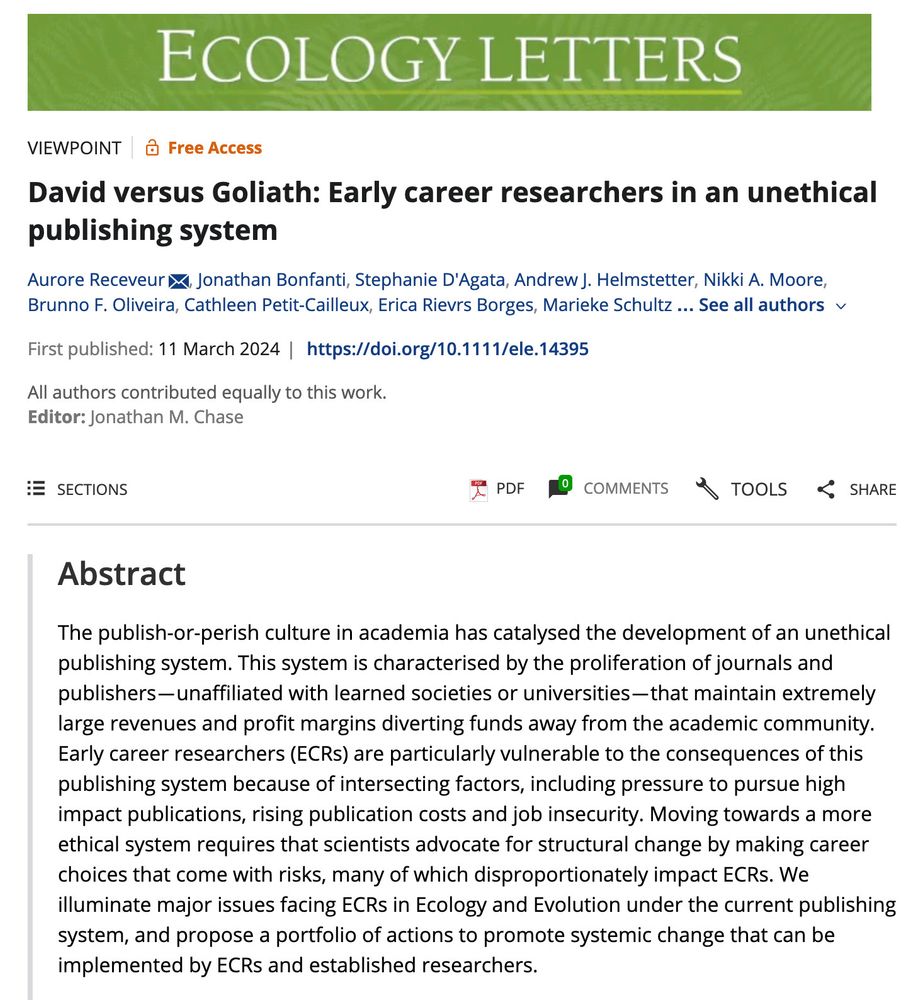
They call for a more ethical academic publishing landscape but also ask to not let only the Early Career Researchers pay the price of this paradigm shift !
doi.org/10.1111/ele....
🧪🌍
Reposted by Jonathan M. Chase
Right?!
Nope, says our analysis of 500+ meta-communities through time just published in Science Advances
🧪🌎🐟🌳🦋 🐦🦌
www.science.org/doi/10.1126/...

Another great work and collaboration led by this amazing team👇

Right?!
Nope, says our analysis of 500+ meta-communities through time just published in Science Advances
🧪🌎🐟🌳🦋 🐦🦌
www.science.org/doi/10.1126/...

